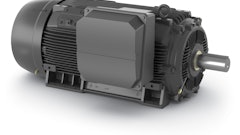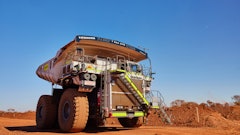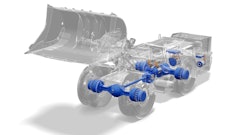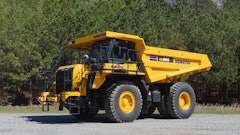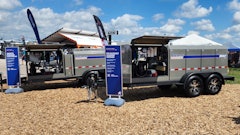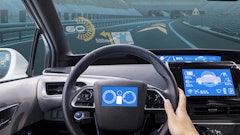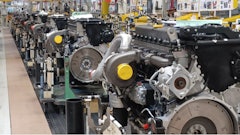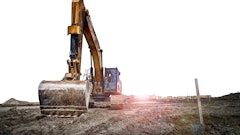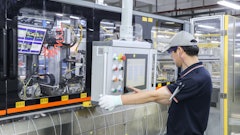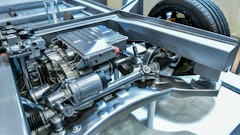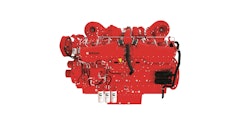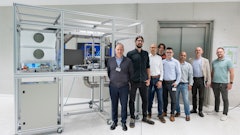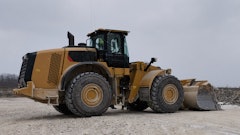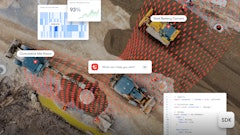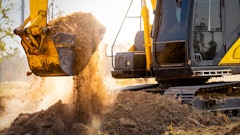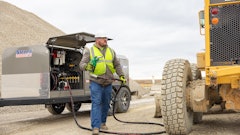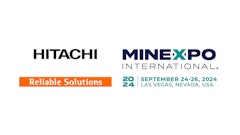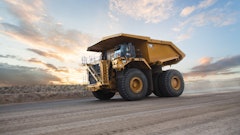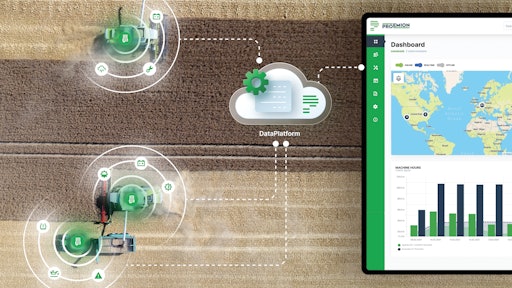
The off-highway industry faces a rising wave of digitalization. While other sectors have already made significant strides toward digital transformation, machine manufacturers often need to catch up due to a lack of knowledge about digital technologies and their potential within many companies. Despite this, the off-highway industry has immense opportunities to boost efficiency and establish innovative work methods.
Integrating machines, cloud technology and data opens new possibilities for improving efficiency and pioneering new ways of working. Standardizing and analyzing collected data play a pivotal role in this evolution, which is growing increasingly important as the industry advances. The importance of data standardization and analysis cannot be overstated in this context.
Telematics: The Future of Connectivity
A key area of development is telematics. Advanced telematics solutions, built directly into the heart of machinery, offer OEMs and machine owners real-time data insights into their equipment, pushing the digital transformation of numerous processes. These systems provide valuable information on machine performance, usage patterns and potential issues, allowing for proactive maintenance and efficient operation.
Telematics can significantly enhance machine lifespan and efficiency. By monitoring vital signs and usage patterns, operators can ensure that machines are used optimally and serviced before major issues arise. This proactive approach to maintenance reduces downtime and repair costs, leading to more reliable operations and improved overall productivity.
Overcoming Challenges
Adopting new technologies is often a daunting task for machine manufacturers. It involves not just implementing cutting-edge tools but also convincing and engaging employees in the process. Success in these areas means that both manufacturers and employees can reap the benefits that digital solutions bring to daily operations. Training and support are crucial for employees to adapt to new technologies and workflows, ensuring a smooth transition and maximizing the benefits of digitalization.
Revolutionizing the Service Sector
The service sector is already experiencing a dramatic shift due to digitalization, presenting numerous opportunities to automate processes and enhance customer relationships. This shift allows for the provision of new and improved services, fostering closer connections with customers. Digital tools enable more personalized and responsive service offerings. By leveraging real-time data and analytics, businesses can proactively address customer needs and increase customer satisfaction and loyalty.
Moreover, remote services and diagnostics are becoming increasingly important for efficient and swift fault resolution and significantly reducing downtime. By accessing machine data in real-time, service technicians can identify and fix issues early without needing to be on-site.
Another emerging trend in the construction industry is the implementation of firmware over-the-air updates. These updates enable remote updates of machine software and systems without physical access. This capability allows manufacturers and operators to respond to new requirements, close security gaps quickly and introduce new functions without taking the machines out of service.
Boosting Efficiency, Cutting Costs & Protecting the Environment
Digital transformation in the off-highway industry also drives significant efficiency improvements, substantial cost savings and reduced environmental impact. Utilizing remote services and diagnostics minimizes site visits and fuel consumption, leading to lower CO2 emissions. Additionally, digital processes optimize resource use and reduce material waste, offering both ecological and economic benefits.
These advancements benefit not only customers and the environment but also employees. Increased options for remote work enhance worker flexibility and mobility, making jobs more attractive and addressing future labor shortages. Furthermore, adopting digital tools and processes can lead to upskilling opportunities for employees, equipping them with valuable technical expertise and increasing job satisfaction.
Digital technologies can also streamline operations by automating routine tasks and providing real-time insights into performance and efficiency. Automated systems can manage inventory, track equipment usage, and monitor environmental conditions, ensuring that resources are used effectively and efficiently. This leads to better planning, reduced waste and more sustainable practices.
Embracing Digitalization: The Role of Machine Manufacturers
For digitalization to take root sustainably in the off-highway industry, active involvement from machine manufacturers is crucial. To achieve long-term effects, they must prioritize digitalization as a core project rather than a peripheral issue. Many companies already have specialized positions, such as "Head of Digitalization," dedicated to this effort. These roles are essential for driving digital initiatives and ensuring digital transformation is integrated into the company's strategy and operations.
Additionally, having digitally savvy employees, particularly service technicians, who are open to new processes is highly beneficial. Companies should actively engage their employees in the digitalization process and offer training to enhance their digital skills. A culture of change is vital, as digitalization brings both technological and workplace transformations. Employees who are comfortable with digital tools and processes can contribute more effectively to the company's goals and adapt more readily to new challenges.
While some fear that digital technologies might lead to job losses, experiences from other industries show that digitalization often creates new opportunities and perspectives. Automating routine tasks can relieve employees, allowing them to focus on more demanding and creative activities. Moreover, with demographic shifts, younger workers tend to be more tech-oriented, fostering a positive attitude toward digital innovations.
Digitalization: A Long-Term Goal for the Off-Highway Industry
Digitalization is not just a passing trend; it is a long-term goal of reshaping industries globally. This shift is a golden opportunity for the off-highway OEM sector to lay the groundwork for future advancements. Given the long lifespan of heavy machinery, addressing digitalization challenges sooner rather than later is crucial for seizing future opportunities. Many manufacturers are already transforming or leading this change by actively promoting digitalization within their companies and equipment.
Recognizing these developments, engaging actively with the digital revolution in the construction industry, and responding innovatively to new challenges to remain competitive in the long run is essential. The off-highway industry must embrace digitalization as a strategic priority to tackle these challenges head-on and secure future success. Companies that invest early in digital technologies and involve their employees in the process will significantly shape the future of the industry.
By proactively engaging with digitalization and involving employees in the process, companies can ensure they are well-prepared for the future. Embracing digitalization will not only help companies remain competitive but also allow them to take full advantage of the numerous opportunities that digital solutions offer. The future belongs to those who adapt and innovate, and digitalization is the key to unlocking that potential.



